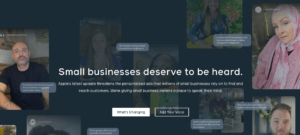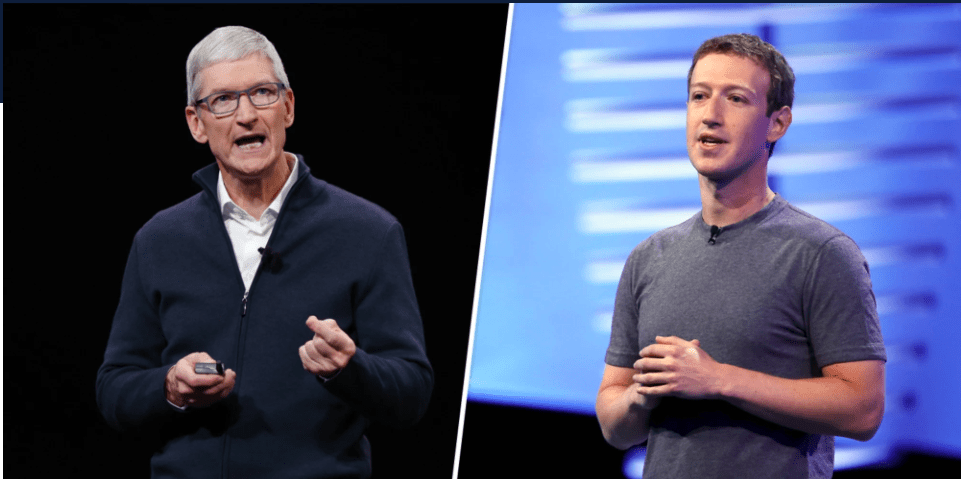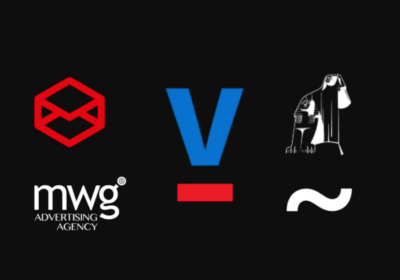Tech giants Apple and Facebook have been publicly clashing over issues of privacy following the release of iOS14. Therefore, it came as no surprise that Facebook hosted an event on the future of digital privacy and compliance with new laws. It’s also their argument for personalized ads…
On May 27 of 2021, Facebook hosted a roundtable entitled ‘The Future of Digital Advertising: Can Personalization and Privacy Co-Exist?” and hosted by Ben Savage and Meera Krishna. Savage is a senior software engineer that leads Facebook’s industry engagement on ads and privacy, while Krishna leads Facebook’s privacy product marketing team.
Split into three sections, the roundtable argued for the importance of preserving personalized advertisements, clarified the evolving laws that govern data collection, and introduced the new software Facebook has developed to protect its users’ privacy whilst continuing to benefit advertisers.
This roundtable couldn’t have come at a better time. We’ll first go into why that is, and then delve into what the roundtable was all about.
The Backstory of an Expected Tech Feud: Why Individual Privacy and Small Businesses Are In the Picture
Facebook has become only further steeped in controversy as the true extent of data collection and its use has risen to the forefront of global consciousness—in part due to popular works like the Netflix documentary ‘The Social Dilemma‘.
Facebook’s existing image problems have been exacerbated in recent months by their extremely public conflict with Apple. The two tech giants have been exchanging fire over each other’s company policies. Although the rivalry has been quietly simmering over the past few years, it all came to a head following Apple’s announcement of the iOS 14 features – the most important of which will allow customers further transparency and the ability to opt-out of data collection from their devices.

Apple’s Chief Privacy Officer, Jane Horvath speaking at the Consumer Technology Association. Photo Via: MacRumours.com
Apple’s change in policy was accompanied by many of its senior executives publicly criticizing the state of data collection as it exists today. For instance, Apple’s chief privacy officer, Jane Horvath, fanned the flames of public concern in an open letter concerning the state of data privacy nowadays:
“Tracking can be invasive, even creepy, and more often than not it takes place without meaningful user awareness or consent […] What some companies call ‘personalized experiences’ are often veiled attempts to gather as much data as possible about individuals, build extensive profiles on them, and then monetize those profiles.”
These thinly veiled comments have since escalated into open attacks on each other’s policies. Whilst Apple criticizes Facebook’s policies of data collection and profile building, Facebook labels Apple’s business model as elitist, as Apple sells expensive products that only a select few can afford.
Moreover, Facebook argues that Apple’s moves towards data privatization are destroying opportunities for small businesses to target their advertisements and build a customer base. In 2014, Facebook founder Mark Zuckerberg famously addressed the public in a statement:
“You think because you’re paying Apple that you’re somehow in alignment with them? If you were in alignment with them, then they’d make their products a lot cheaper.”
Facebook has thus created its own media campaign to speak out about its interpretation of Apple’s monopolization of small businesses. Not only have they run scathing advertisements in established media outlets such as The New York Times, Wall Street Journal, and Washington Post, but Facebook has also created the #SpeakUpForSmall initiative aiming to protect startups and small businesses.

Screenshot of Facebook’s Homepage for the #SpeakUpForSmall initiative in protest of Apple’s iOS14 update. Photo Via: Facebook for Business.
Facebook is now hosting events such as this roundtable to explain their line of thought, defend their corner, and showcase their dual commitment to privacy and the support of small businesses.
Facebook’s Case for the Use of Personalized Advertisements
Facebook Software Engineer, Ben Savage, kicked off the roundtable by speaking about the reason behind Facebook’s reliance on and support of personalized digital advertisement. Beyond the obvious reason that the company needs to bring in revenue to continue offering the platform and its services to individuals for free, Savage spoke extensively on Facebook’s driving goal: the creation of value.

Ben Savage. Photo Via: bizjournals.com
“We think about it as forming these connections between people and businesses – connections that we hope are really meaningful and valuable for both. Facebook has always been about connecting you to what you love. Not only to family and friends but also about connecting you to brands and products.”
He explains, therefore, that Facebook selects advertisers that they believe will bring the highest value to the consumer when deciding to fill an ad space in a user’s newsfeed. Facebook calculates the expected value of an advertisement as it relates to the individual by compiling data on how the user has interacted with advertisements in the past.
It also relies on their behavior, which includes websites they have visited and apps they have downloaded. In doing so, Savage explains that Facebook prioritizes value over profit: “We don’t select the ad that has the highest advertiser bid. Even if the advertiser is willing to bid quite a bit, if we think this ad is likely to be irrelevant for someone, it may not win the auction – again, this is because we are focused on creating meaningful connections.”
In a bidding war, one might guess that money wins, so long as the ad follows Facebook’s rules. But apparently, that’s not the case. So, this is a HUGE insight for businesses advertising on Facebook.
According to Savage, this is indicative of Facebook’s holistic commitment to user experience. This commitment to value and personalization is implicit in each of their products.
He uses the example of his newsfeed – filled with updates about the lives of his family and friends. Whilst this is important to him, it doesn’t have the same value for a stranger.
Similarly, whilst joining a Facebook group that shows listings for real estate in Cairo might be useful to me, it wouldn’t be as valuable for someone who lives in Los Angeles. Savage extrapolates this principle to advertisements: “The same is true for brands and products. The brands and products that are valuable and meaningful to me could very well be different to someone else.”

Savage argues that un-targeted advertisement doesn’t allow small businesses to thrive. Photo Via: Flickr, Ryan G
Meanwhile, Savage explains that the creation of value for users is mutually beneficial for small businesses. Without personalized advertising – such as the billboards littering the Corniche – small businesses would certainly be unable to outbid long-established corporations that can afford to advertise so indiscriminately.
Personalization and targeting allow small businesses to reach their intended audience without blowing their budget:
“We’re really proud of the ecosystem we’ve been able to create with our personal ads ecosystem, where lots of small businesses are able to succeed at the same time, instead of having to outbid and outcompete every other advertiser. Different businesses are able to connect with the people who are most likely to be interested in their product.”
Facebook’s Introduction of New Privacy Software to Protect Their Clients
As a specialist in the intersection between privacy and adverts, Savage is uniquely qualified to share expertise on the development of privacy software that protects both clients and businesses, without compromising the quality of user experience. He began by addressing the concerns of critics of data collection and lenient privacy laws as they exist today.
“Nobody is happy with the status quo, including Facebook. That’s why it’s important for us to invest in new technologies that don’t force us to make a decision between personalization and privacy.”
Savage then ran through three key privacy-enhancing technologies that Facebook has been involved in developing. These technologies still provide the consumer base with relevant personalized adverts, whilst “introducing barriers that make it technologically impossible for us to know precisely what people are doing outside of Facebook’s apps and websites.”
1. Secure Multiparty Computation (MPC)
Having been developed since the 1970s, this software has become more efficient and broader in scope than its initial intended use. In essence, it allows Facebook and their partnered businesses to compile relevant statistics concerning engagement with and ultimate success of previous advertisements, without either entity sharing any private data to which they have access. This enables them to analyze the potential success of advertisements amongst a target audience, without ever encroaching on the privacy of their users.
“You can find how to compute aggregate statistics about data, without ever having access to the underlying data itself. It sounds like magic, but it’s just mathematics.“
Still, confused? You can find a longer, more comprehensive explanation of MPC here.
2. Blind Signatures
This is an ad fraud prevention technology that began development by cryptographers in the 1980s. Blind signatures began as a means of verifying user engagement with an advertisement in order to combat fraud and accurately calculate potential interest. Adding a blind signature allows Facebook to ensure these engagements were done by a human hand, rather than a bot. Thereafter, Facebook is able to create variations of such blind signatures that still protect us from advertising fraud whilst also protecting the digital record of the person who had clicked on it.
“The signature carries no information about the identity of the user.”
Savage has been so central in adapting this technology to protect Facebook users that he has published an in-depth explanatory article about blind signatures.
3. On-Device Learning
In order to extract the data which will allow Facebook to predict which ads will be relevant and engaging for you, their users, they rely on sharing data from other companies and websites that you have visited from across the internet.
At the moment, this data exists and remains on the Facebook server. On-device learning is a technology that aims to eliminate the need for your personal data to be collected on Facebook servers and instead have them stored on your device, while still allowing them access to the patterns and statistics that inform their ability to personalize your advertisements.
“The opportunity here is that off-Facebook behavioral data will never ever ever touch Facebook servers at all. It just…stays on the person’s device.”
How This Builds Upon Privacy Settings That are Already in Place
Meera Krishna took on the second half of the discussion and began by highlighting some of the ad preferences settings that Facebook already has in place to protect their users’ privacy.
- Manage Your Interests – You can adjust and remove categories you’ve been labeled as interested in, and hence you’re targeted based on, in your settings. Learn how to do so here.
- “Why am I seeing this?” Button – A popup in the corner of sponsored ads that will automatically give you context about why that ad has appeared on your feed, and link them directly to action you can take if you don’t want to see ads with similar unfavorable aspects anymore.
- Off-Facebook Activity – A tool released in 2018 that gives you access to all the information that Facebook has collected about your activity on other sites and apps. You can use this, and choose to disconnect that information from your account if you wish to. Find instructions on how to do so here.
Krishna, therefore, reminded the audience that Facebook has always been actively engaged in allowing users the option to increase their privacy settings, it’s just these options aren’t well known or used.
How Facebook Has Historically Adapted to Maintain Compliance With the Law
Many of these changes, Krishna continues, were formed in compliance with the introduction of evolving regulations on data privacy as the internet, and social media became more mainstream.
People usually consider these privacy regulations to be a uniquely European problem, as both the GDPR and Privacy Directive originated in Europe. These introduced regulations have allowed the general public the right to object to the processing of their information, introduced principles around data minimization, and necessitated the establishment of “data protection offices” within companies.
Gradually, however, Krishna has witnessed a call for these regulations to spread across the globe – beginning with the California Consumer Privacy Act in the US and Lei Geral de Proteção de Dados (LGPD) in Brazil during 2020. Krishna added:
“This year, we expect an additional 8 to 14 regulations to go into effect around the world in places like Asia, Africa and even the United States potentially.”
Whilst Facebook is respectful and supportive of new data restrictions and the privacy it promotes, they remain concerned about the consumer experience. For instance, within the EU, a person can be expected to consent to three separate sets of privacy agreements before accessing their profile. Therefore, Facebook is invested in maintaining legal compliance whilst not letting it detract from a seamless user experience.
Supporting Small Businesses With the implementation of the New Software and Privacy Policies
Obviously, Facebook – as a hugely powerful tech company – has the resources on hand to develop this data compliance and ensure its activities remain within the bounds of the ever-evolving privacy laws. Because of this, Facebook was quick to emphasize their sympathy and disappointment that small businesses will be much less likely to compete in the new ecosystem, as Ben Savage stated:
“We think that businesses like Facebook will face some headwinds, but we think that our business will be able to navigate these changes fairly well. It’s our belief that the maximum harm is going to happen to the smallest businesses […] I don’t want to see a world where the smallest are harmed and the people with the most data are able to survive.”
By reminding us that Facebook was likely to easily pivot and adapt to these laws, the speakers were able to remind us any resistance or objections to newly imposed privacy laws are due to a commitment to the protection of small businesses, rather than as Apple claims, due to concerns over their own ability to mine data.
Moreover, Facebook was quick to champion itself as a crucial protector of small businesses. That’s why Krishna said:
“It was a lot of the small- and medium-sized businesses that maybe don’t have a dedicated legal team that really struggle to understand what the requirements were […] That’s why we’ve asked platforms like Google and Apple to take the time to make sure they’re really bringing small businesses along to mitigate the impact that we see on the overall system.”
Moreover, both Krishna and Savage were quick to commit Facebook to facilitate the transition of small businesses into legal compliance. For instance, a small business owner in the Middle East expressed his anxieties about transitioning to comply with newly introduced laws and regulations – especially considering the relatively limited technology to which he has access.
In response, Krishna stated that Facebook will continuously invest in informing and educating small business owners during informational events. At the same time, he’ll direct the team to develop software that will facilitate compliance with the law without diminishing their ability to advertise to specific target audiences.
Either way, one would likely agree that Facebook has become so deeply entrenched in Egyptian life that at this point it would be extremely challenging to disconnect ourselves entirely from it. In this sense, do privacy laws really matter to Facebook’s users?




























